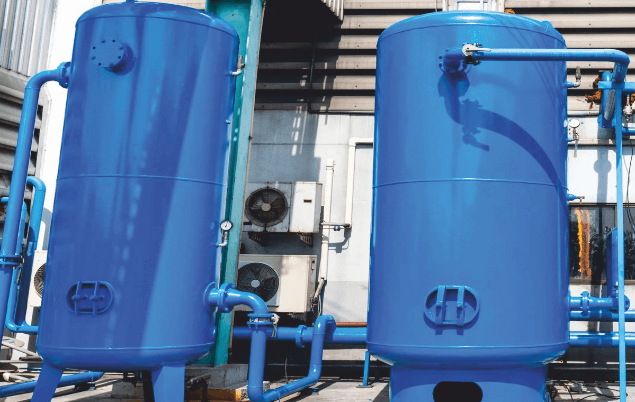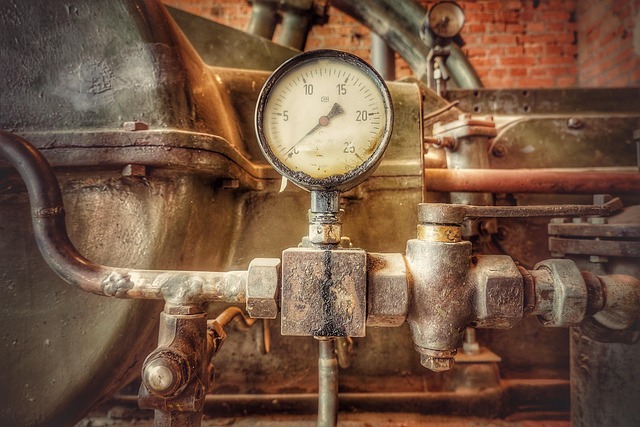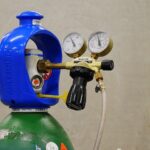Pressure vessels are now essential in the functioning of modern industry. These specialized containers contain gases or liquids under a pressure that differs significantly from the surrounding atmosphere and are used in chemical plants and oil refineries, food processing plants, and pharmaceutical processing plants. Their contribution plays a vital role in the manufacturing process, energy generation and efficiency in operations.
There is however a major responsibility that accompanies their importance. Poorly maintained or poorly-constructed pressure vessels that are not operated with proper safety parameters, can result in disastrous incidents, posing harm to employees and destroying industrial infrastructure. Their safe operation cannot be guaranteed by engineering knowledge only but also by rigid adherence to the law. In India, the legal framework regarding protection of workers and operational safety in the context of pressure vessels is strongly defined in the Factories Act, 1948, as well as rules set by the states, like The Gujarat Factory Rules, 1963, of Gujarat State.

The discussion below examines the role of these laws in the regulation of pressure vessels, the duties of occupiers and inspectors in particular, laws in Gujarat that are unique and the best practices industries must use to be compliant.
Legal Framework Overview
The Factories Act, 1948 and Its Relevance to Pressure Vessels
The Factories Act of 1948 is one of the most extensive documents on the legislation of labor welfare, health, and safety in the industrial establishments. Section 31 of it specifically deals with pressure plants. In this section, any factory that operates a pressure vessel or plant is obliged to ensure that the equipment used is in a good state, well maintained and it should be safe to use at all times.
The main lessons out of Section 31 are:
Mandatory Examination: Pressure plants should be examined by skilled personnel (can be an employee or external agency) at least once every in a year to ensure that they are fit to work.
Safe Operating Pressure: The factories should display the safe working pressure of the vessels visible and should not ever be exceeded. Such name plate should be clearly visible as well relevant documents must be available as and when required.
Record Maintenance: Meticulous documentation of the inspection, repair and testing should be maintained and made available to the inspector when needed. This are to be in a Register format where history as well as action taken against any non-compliance can be traced.
Role of Inspectors and Duties of Occupiers
The responsibilities of both the inspectors and the occupiers under Chapter IV ( Safety ) of the Factories Act are defined accurately.
Factory Inspectors: They have the authority of checking conformity, requiring documentation and instructing directions to make sure that factories comply with safety measures. The preventive role of the inspectors is that they detect the lapses before they develop into accidents. Inspectors are government appointed officers who are given special powers as duties to make sure the relevant area industries follows the defined law.
Competent Person: A Government authorised person to inspect and certify the equipment as per the Factory Act or Gujarat Factory rule is called “COMPETENT PERSON” under the act. (Trivedi and Associates are competent person)
Occupiers: The occupier of a factory has a legal responsibility to make sure that the premises and all machinery including pressure vessels are following safety requirements. He needs to maintain the details in set format and register on site and submit / provide to Factory Inspector as and when demanded. This responsibility is not only limited to scheduling of inspections but also to make sure when repairs are being made and also to make sure that defective equipment is not being used at all under whatever condition.
This three-fold system of accountability guarantees regulatory accountability as well as operational accountability.
Gujarat Factory Rules, 1963: State-Specific Provisions
Although the Factories Act is the primary source of law, the central law is expanded by the Gujarat Factory Rules, 1963, which stipulates procedures to be followed in accordance with the state industrial environment. In the case of pressure vessels, the regulations put down workable mechanisms of implementation.
Rule 2A: Recognition of Competent Person.
Rule 2A states defines a Competent Person, who is to ensure that essential safety examination and certification are done applying the utmost knowledge. A capable individual is a person or even an organization whom the Chief Inspector of Factories designates as qualified to conduct inspections, tests and certification of pressure vessels.
The stricter criteria of choosing a competent person is to ensure that only professionals who are certified and have the right knowledge, experience, and technical ability to undertake such a critical responsibility of testing and certifying pressure equipment. Such competent person cannot do the examination for any industry where he / she or their organistion have vested interest. Such competent person has to be individual without any prejudice to any industries they deemed or are examining.
Frequency of Testing
The Gujarat Factories Rules, 1963, provide that pressure vessels should be externally inspected after every six months and internally inspected after every year and a hydrostatic (hydro) test should be conducted after every two years on standard vessels, or after every four years on those in continuous process plants, unless non-destructive tests such as gamma scanning are undertaken after every two years where internal/bi-annual hydrostatic test is not possible. Trivedi Associates offers consultancy and services related to such kind of statutory inspection as NDT, training, but the frequency and other requirements depend on the factory rules in particular.
Frequency of Testing Gujarat Factories Rules, 1963.
Hydrostatic (Hydro) Test:
- Two years to standard pressure vessels.
- Four years of pressure vessels in continuous process plants.
- When a hydrostatic test is not practical (because of the design or operation of the vessel) a non-destructive test (such as ultrasonic or gamma scan) can be carried out by a competent person after every 2 years.
Internal Inspections and External Inspections:
- External inspections will take six months.
- Internal inspection on an annual basis.
Trivedi Associates’ Role
Trivedi Associates has a service in association with Gujarat Factories Rules, which includes the systematized Non-Destructive Testing (NDT).
They also offer advisory services of statutory checks and training so that one can stick to the regulations.
Through their services, the pressure vessels can be tested and certified as per the regulation, as outlined in the Gujarat Factories Rules, 1963.
Applicable Rule and Form
In Gujarat Factory Rules, the inspection and certifications should be written with the help of prescribed forms. In the case of pressure vessels, there is normally a filing of report in Form No. 10 that captures the status of a vessel, test outcomes, working pressure allowed and any suggestion of repair or continued use. Such is prepared and signed by competent person based on his finding on site.
Such a standard method guarantees consistency between industries, which makes it simpler to have inspectors review compliance and easy to keep to a clear audit trail by the factories.
Consequences of Non-Compliance
Violations of the Factories Act and Gujarat Factory Rules can be punished severely.
Legal Penalties
The factories that have been operating pressure vessels without proper certifications and inspections are liable to heavy penalties.
In extreme situations the law may also lead to imprisonment of the occupier or manager who caused the lapse.
Failure to comply may also lead to factory suspension until it complies with the safety standards, in the process incurring significant business losses.
Threat to Personnel Safety and Workability
In addition to the legal punishment, non-compliance is a threat to human life and property in immediate terms. Portal explosions or leakages of pressure vessels may cause deaths, serious injuries and lifelong health risks to employees. Furthermore, such accidents may cause destruction of equipment, stop-loss and loss of reputation of a company.
Compliance is therefore not only a legal requirement but also a moral and working requirement.
Best Practices for Compliance
Fulfilling the law is obligatory. Best practices that advance organizations to beyond the minimum standards are embraced by forward-thinking organizations to promote a safety culture.
Preventative Maintenance Plan
The factories should also have a clearly defined preventive maintenance schedule to follow both the legal test schedule and what the manufacturer recommends. This includes:
- Periodic in-house inspection to detect instances of corrosion, leakage or material fatigue.
- Calibration of pressure gauges, safety valves, and alarms on a regular basis.
- Having an online logbook of all inspections, repair and test reports so that they can be easily accessed during audit.
Educating Employees about Safety measures
Employees working in contact with the pressure vessels should also be trained in the working procedures and those dealing with the emergencies. Training should cover:
- Proper start and close down process.
- Awareness of the initial signs of pressure abnormalities.
- Actions to be undertaken in case of leak, rupture or other emergencies.
- The first line of defense against accidents is well-trained staff.
Teamwork with Certified Inspectors and Engineers
Factories should see an opportunity in collaborating with competent people and inspectors instead of considering as a burden of compliance. Technical knowledge can be used to detect the presence of operational inefficiencies, recommend upgrades, and minimize the possibility of breakdowns by certified professionals. Creation of long-term collaborations with these specialists will guarantee continuous increase of the safety standards levels.
Conclusion
Both important and sensitive parts of industries are the pressure vessels. To use them safely needs a balance between engineering accuracy and preventive maintenance and absolute adherence to the law. The Factories Act, 1948 and the Gujarat Factory Rules, 1963 give a solid legal basis to avert the situation of these vessels being operated and maintained without regard to the safety of the workers or industrial performance.
Compliance does not just mean fines to those occupying a factory and those in charge. It is concerned with establishing a work environment culture in which safety is part of the operations. The process of assigning capable individuals and keeping records of inspection, training of personnel and adopting the concept of preventive maintenance are all elements of operational integrity and human safety.
To learn more about specialised services in Pressure vessels inspection in Gujarat, Visit Trivedi and Associates to investigate professional assistance in inspections, certifications and safety management.




